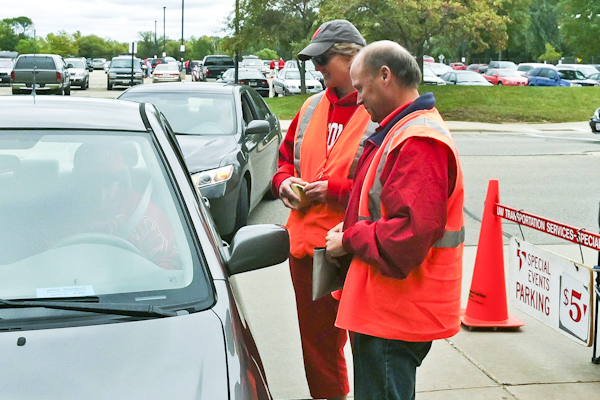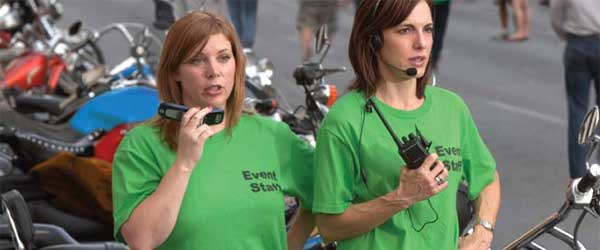10 Things to Do Hours Before Your Event Starts
The event day has arrived - congratulations! It’s time to see all your hard work pay off.
Like many event planners, you’re probably running around like crazy, trying to make sure everything is in place. Channel that nervous energy with this checklist to ensure that your event goes off without a hitch.
1. Confirm vendors
On the day of your event, call vendors early to confirm where and when they’ll arrive. If there are any issues with your vendors, you want to know as early in the day as possible.

This is an important time to have your list of backup vendors handy, just in case you need to make some emergency phone calls.
2. Double check vendor payments
Be sure you have all vendor checks printed and sealed so you can hand them out at the end of the event.
Give them to a staff person or volunteer to ensure that each vendor is paid. If a vendor prefers to send you an invoice post-event, hand them a thank-you note in their envelope instead.
3. Run equipment and sound checks
Your A/V team will probably be one of the first vendors to arrive at the event. Run through the program one final time.
Ensure that sound, lighting, and video are perfect and address any issues during the run-through.
If something isn’t quite right, demand another run-through until the show goes off perfectly.
4. Hold a staff and volunteer meeting
Meet with everyone involved in working at the event so that you can address any issues head-on. This is the time to put your delegation plan to work.
When a volunteer or staff member brings up something that needs attention, direct them to the appropriate party in charge.
|
Purplepass for volunteers Not just for events! Use Purplepass for volunteer management, create campaigns, sign up pages and it's free! |
5. Set up communication systems
Whether you’re using walkie-talkies, a text app, or another way to stay in touch with your staff and/or volunteers, make sure everyone is on the same page.
Share contact information, post an event schedule, and provide a hard copy sheet for volunteers and staff to check-in and out.
6. Verify registration and ticketing systems
Be sure that you’re online.
If you have someone from off-site coming to run your registration and ticketing, ask them to show you that systems are up and running.
Role-play the process of purchasing a ticket or checking in so that you know there are no issues with your system.
It’s a good idea to have a tech-savvy volunteer stationed at registration before the event, scanning the system for potential issues that could put a hold on the registration process.
|
Publish your event in a few minutes Create an account, add event details and go live! |
7. Set up marketing material
From wristbands to press kits to programs, make sure that all your marketing material is in place before your guests begin to arrive.
- Signage
- Programs/pamphlets
- Merchandise/swag
- Tickets/wristbands
This job can certainly be delegated to a volunteer or staff member, but you’ll want to do a quick walk-through to ensure that the set-up meets your standards.
8. Check-In with your parking team
Talk with your valet company or parking volunteers and go over the parking plan. Be sure there’s a plan in the event that they have more cars than expected.
Double-check that they have your contact information in case there’s an issue.

9. Meet with talent
Similar to your volunteer and staff meeting, have a quick meeting with your speakers, presenters, and talent.
Go over any important information and be sure they understand the flow of the program. Include your on-staff program director in this meeting, and let the talent know that this person is their go-to for any event-related issues.
10. Collect real-time feedback
Throughout the event, you’ll want to make sure you’re already beginning to collect feedback on how to improve the flow and program for the following year.
Taking random surveys at registration, and during program breaks can help inform future event planning processes.
Offer a great prize to get people invested in taking part in the survey process or enter them in a drawing.
|
Stats, reporting and sales alerts Find a report that works for your event with Purplepass. Use our reports or build your own such as marketing, financial or event statements. |







